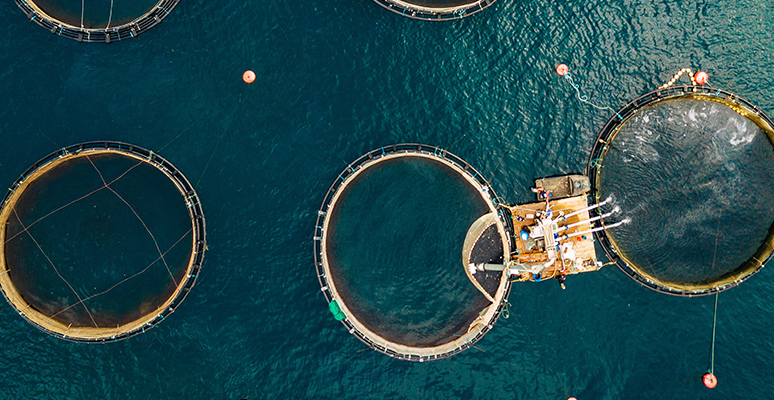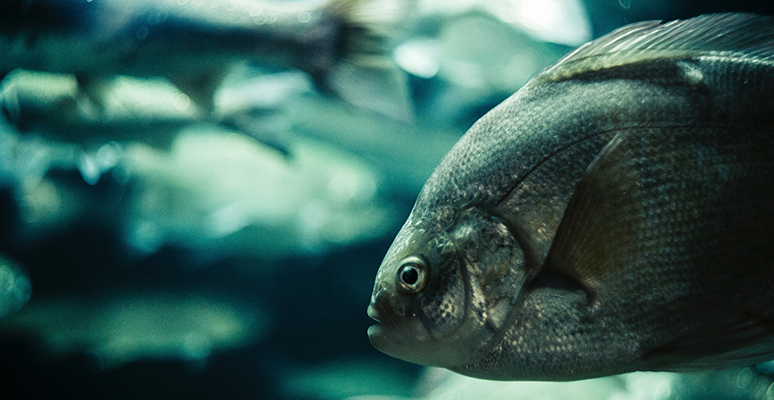Public perceptions of animals have changed a lot in recent decades. In large part, credit for this is due to a fierce global animal advocacy movement which has worked to raise awareness that animals are sentient beings who are owed flourishing lives. We have a long way to go, but certainly improvements in welfare, rights recognition and changing consumer decisions are an outcome of a very strong advocacy movement.
However, fishes often escape the attention of animal advocates. High profile animal advocacy campaigns tend to focus on land animals used for food, amusement or experimentation. This means that apart from exceptional cases, such as whales or dolphins, public pressure for improved welfare or recognition of rights is usually focused on land based animals. Indeed, there seems to be an almost uncanny silence when it comes to thinking about fishes – they are, as Peter Singer has described, the “forgotten victims on our plate.”
This is unfortunate, since humans use fishes more than any other animal. UN Food and Agriculture Organisation figures suggest that humans slaughtered close to 75 billion land animals in 2017 for food. This figure is sobering for all animal advocates. However, human use of fishes for food far outstrips our use of land animals. Fishcount.org.uk estimates that globally each year up to 2.3 trillion wild fishes are captured in our seas. We have also seen a massive expansion in aquaculture (or “fish farms”) globally, with the UN Food and Agriculture Organisation announcing that in 2014 “the aquaculture sector’s contribution to the supply of fishes for human consumption overtook that of wild-caught fish for the first time.” Globalised production and processing of fishes mean that they constitute some of the most traded food commodities on the planet. Large numbers of fishes are captured for subsistence and recreation globally, and fish are increasingly found today in labs as test subjects.

Pictured: Salmon fish farm
In many contexts, particularly industrial-scale wild fish capture, basic welfare precautions are completely absent. For example, most wild fishes caught globally die through asphyxiation. These animals are left on the deck or on a line to suffocate. Death through asphyxiation is incredibly cruel for fishes. Research has indicated that some fishes, such as sea bass, will take up to 60 minutes before they lose consciousness. In industrialised wild fish capture, many fishes suffer severe injuries when hauled up by nets, including through burst swim bladders as a result of rapid pressure changes, or being crushed or injured by other fish, when scooped or “brailed” onto the deck of the ship.
Many people assume that fishes do not feel pain, or lack the abilities that land animals posses. However, these views are increasingly being shown to be erroneous. Pioneering work by scientists such as Lynne Sneddon and Victoria Braithwaite have shown that fishes feel pain in a way that is comparable to land animals. And while not all scientists agree, we are fast approaching consensus that fishes indeed do suffer like us. In addition, there is much interesting work being done on fish cognition and emotion, including by Australian-based scientist Culum Brown. This research increasingly shows that fishes have complex emotional lives and relations with others.
The implications of this emerging science on fish sentience, emotion and cognition is profound. For fisheries, the implications are perhaps most significant, since basic welfare measures are not compatible with industrial fisheries. It is certainly very difficult to see how wild capture fisheries – which typically involve hunting down schools of fish, netting them, and hauling them onto boats to be left on deck to die – could ever be reformed to meet minimal welfare standards. This is perhaps why there remain very strong economic interests in maintaining the status quo.
However, there is an important message here for animal advocates too, who themselves appear to have also forgotten about fishes. For animal advocates there is now an important challenge in building advocacy for sea creatures. Fishes are the most highly utilised animals on the planet; yet welfare and rights protections are at the lowest level for these creatures, and these animals are frequently near the bottom rung of public perception. There is an urgent need for advocates to help build public awareness around the lives of fishes.

And work has already started. Internationally, activists have been building an annual World Day for the End of Fishing on March 30. Advocacy organisations have also started to create better resources which highlight the welfare and rights of fish.
Perhaps fortuitously, animal advocates are not alone in being concerned about how fish are used today. Fisheries in particular have generated deep concerns for labour rights activists in relation to the use of low wage and forced labour in fish capture and processing. Fisheries have attracted a lot of attention, in part because of the unsustainability of industrial wild fish capture, and the growing environmental problems associated with aquaculture, such as the impacts of fish escapes. Indeed some of these concerns have led commentators to call for consumers to “stop eating fish.” Given this growing chorus of concern, the timing is perfect for us all to work harder towards ending our mass scale violence towards fishes.
Editor’s note: You may have noticed that the term ‘fishes’ is used in this blog instead of the word ‘fish’. This wording has been used to capture the fact that there is a large diversity of species classified as ‘fish’, so it is more accurate when speaking generally about all species of fish to refer to them as ‘fishes’.
Voiceless Blog Terms and Conditions: The opinions expressed on the Voiceless Blog are those of the relevant contributors and may not necessarily represent the views of Voiceless. Reliance upon any content, opinion, representation or statement contained in the article is at the sole risk of the reader. Voiceless Blog articles are protected by copyright and no part should be reproduced in any form without the prior consent of Voiceless.

